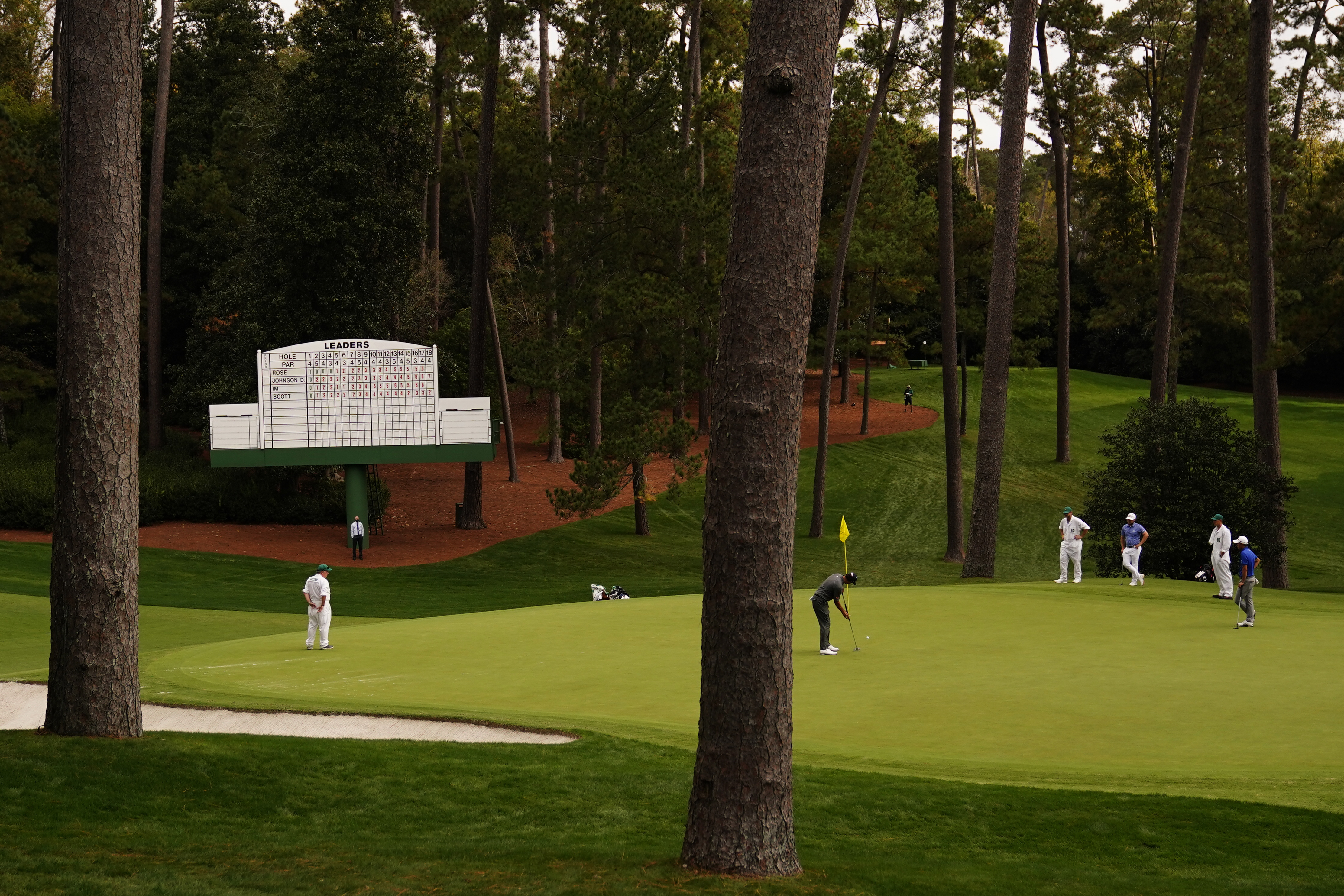When Manchester United won their first 10 games – and still gifted the title to Liverpool
Ron Atkinson's Manchester United set off like a train – but went badly off the rails as their bitter rivals steamed past them. Jon Spurling blows the dust off the history books
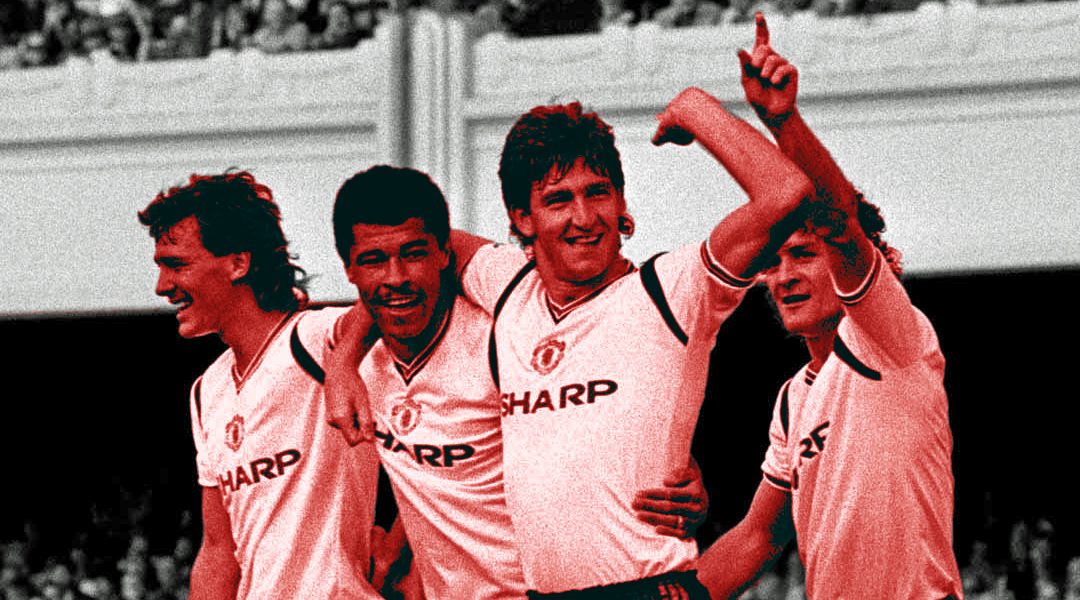
By the summer of 1985, English football appeared to be in almost terminal decline, under attack from both the Government and its own fans. In the wake of the Heysel Stadium disaster, English clubs were banned from European competition indefinitely, and following the riots at St Andrew’s and Kenilworth Road, Parliament debated prohibiting the sale of alcohol at games, a move which was estimated to cost clubs up to £4 million a year – when the record transfer fee was £1.5m.
In July, Mr Justice Popplewell’s official report into the safety of sports grounds suggested banning away fans from games, and to compound the problems, a TV blackout for the first part of the season summed up the horrendous mess English football found itself in.
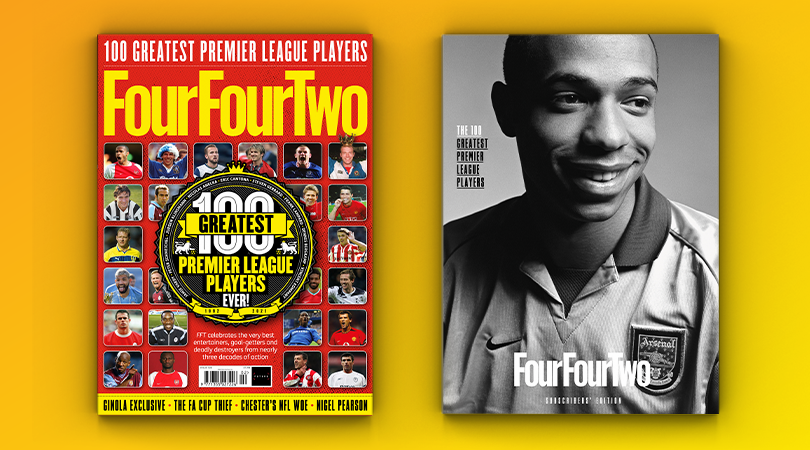
IN THE MAG 100 greatest Premier League players... EVER!
The normally ebullient Manchester United manager Ron Atkinson admitted: “There’s little doubt that football stands at a crossroads, and it’s now even more important to remember that football should be all about entertainment. At Old Trafford, we’re aiming to put the smile back on people’s faces.”
The United supremo, who’d just seen his side defeat Everton in the FA Cup final at Wembley in May thanks to Norman Whiteside’s winner – denying the Merseysiders the domestic Double – admitted to being “obsessed about finishing ahead of Liverpool and Everton. If we do that, we’ll be the 1986 league champions – no question.”
The FA Cup winners seemed ideally placed to end what had become an 18-year hoodoo and lift their eighth First Division crown. Liverpool were badly shaken by Heysel, with manager Joe Fagan stepping down and the club surprising many by entrusting Kenny Dalglish as player-manager. For their part, Everton had also made a questioned move, selling star striker Andy Gray to Aston Villa. Meanwhile, Atkinson had been gradually assembling United’s best team for years. They had a strong if occasionally pedestrian defence, with the combative and skilful Paul McGrath at its heart; their midfield possessed a blend of Gordon Strachan’s skill and the power of young Norman Whiteside, and talismanic skipper Bryan Robson.
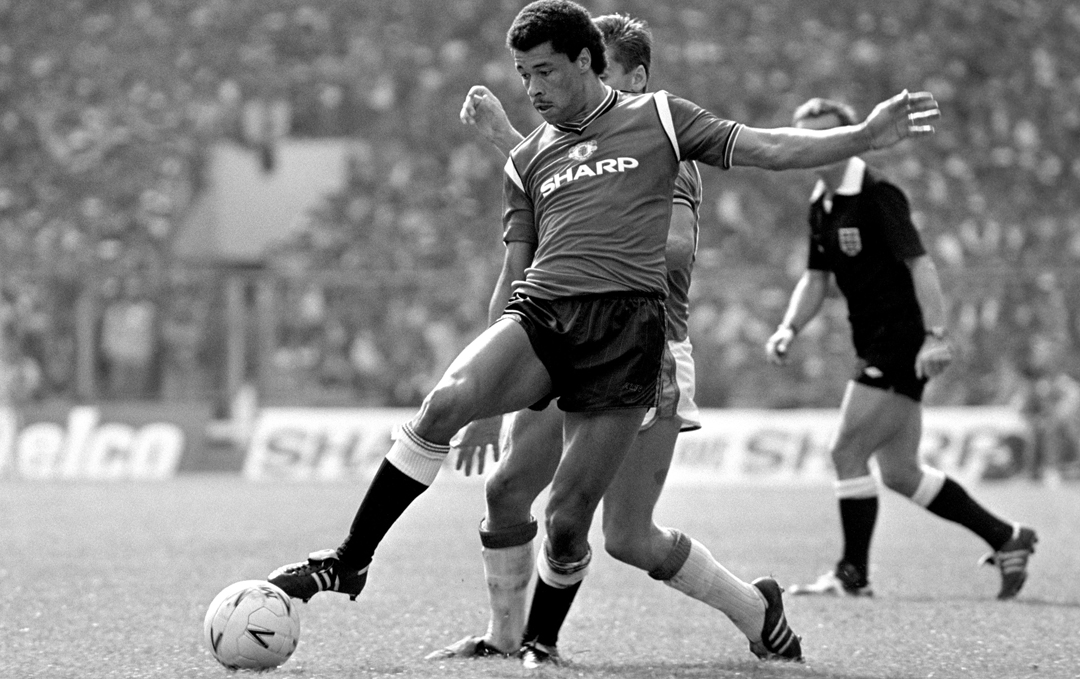
The width added to the team by mercurial Dane Jesper Olsen set up numerous chances for robust front pair Frank Stapleton and Mark Hughes, who were both in fine form in the early stages of 1985/86.
Average attendances slipped following the Heysel riot and the European ban, but an expectant 49,743 packed Old Trafford for the first game of the campaign against Aston Villa and saw the Red Devils run out 4-0 winners, with Hughes grabbing a brace. “We looked fluid and menacing throughout,” purred Atkinson. “To be so rhythmic early in the season is very pleasing.”
Get FourFourTwo Newsletter
The best features, fun and footballing quizzes, straight to your inbox every week.
Aug 17 Aston Villa (H) W 4–0
Whiteside, Hughes (2), Olsen
Aug 20 Ipswich (A) W 1-0
Robson
Aug 24 Arsenal (A) W 2-1
Hughes, McGrath
Aug 26 West Ham (H) W 2–0
Hughes, Strachan
Aug 31 Forest (A) W 3–1
Hughes, Barnes, Stapleton
Three days later Robson bagged the winner at Ipswich, and the following weekend at Highbury, Whiteside terrorised Arsenal’s midfield as United battled their way to a 2-1 win through Hughes and McGrath. Before August was out Atkinson’s side made it five wins from five, beating West Ham and Nottingham Forest.
“This is a very, very exciting situation which we find ourselves in,” explained striker Frank Stapleton. “We’ve won our first five fixtures, and although no one is getting carried away, we believe we can carry on with this run. I moved here from Arsenal to be a winner. The others feel the same. This is our chance.”
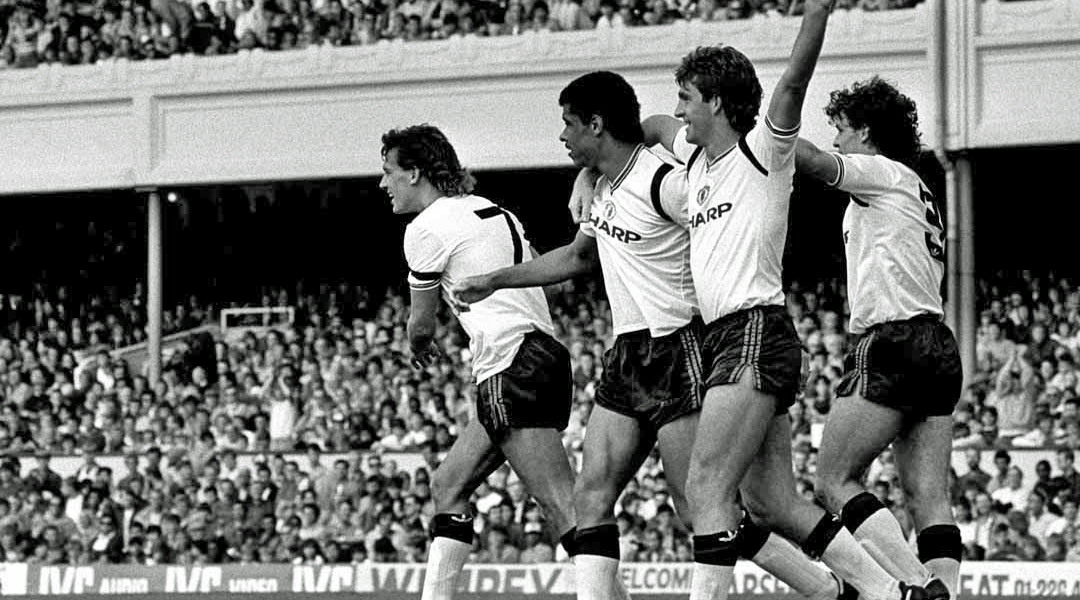
Sizzling September
Sep 4 Newcastle (H) W 3–0
Stapleton (2), Hughes
Sep 7 Oxford (H) W 3–0
Whiteside, Robson, Barnes
Sep 14 Man City (A) W 3–0
Robson (p), Albiston, Duxbury
Sep 21 West Brom (A) W 5–1
Brazil (2), Strachan, Blackmore, Stapleton
Sep 28 Southampton (H) W 1–0
Hughes
United continued to motor throughout September; they picked up three successive 3-0 wins without leaving Manchester, dispatching Newcastle and Oxford at home before administering the same dose to Manchester City at Maine Road. The abiding memory of the Manchester derby remains Arthur Albiston’s exquisitely drilled 25-yard shot, which fizzed into the City net.
United then went to The Hawthorns, from whence they had lifted gaffer Atkinson and skipper Robson, to rout West Brom 5-1 before rounding off September by edging out Southampton 1-0 at Old Trafford in front of a fourth successive 50,000+ home crowd. United had won their 10 opening matches on the bounce.
“It’s magnificent, but the league is a marathon, not a sprint,” admitted Atkinson in classic manager-cliché mode, before adding: “We know we can’t continue winning forever, and the key will be to picking ourselves up after we stumble.”
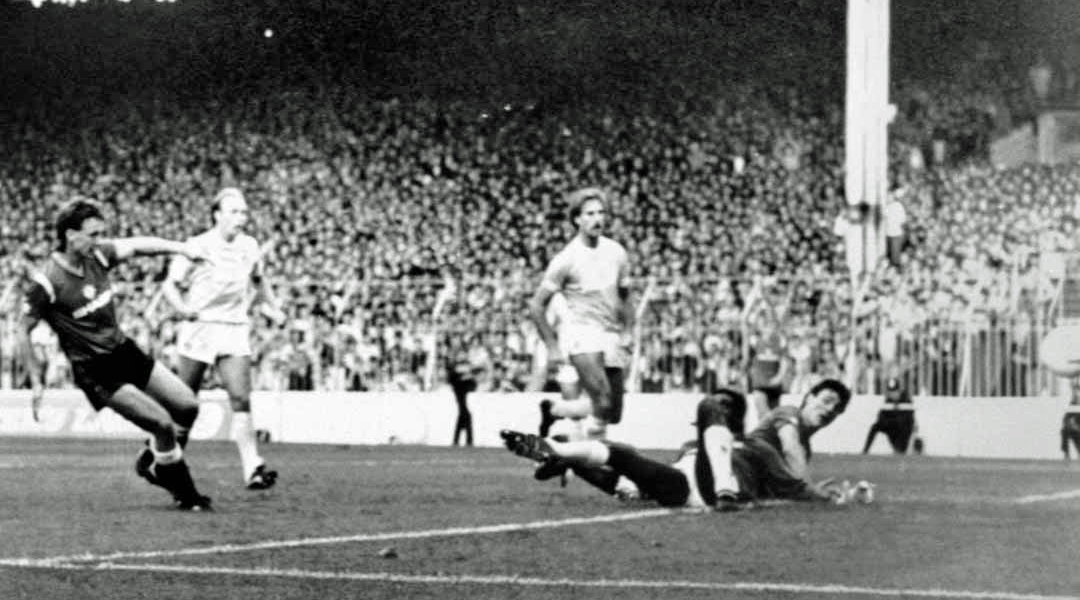
Remaining unbeaten
Oct 5 Luton (A) D 1-1
Hughes
Oct 12 QPR (H) W 2-0
Hughes, Olsen
Oct 19 Liverpool (H) D 1-1
McGrath
Oct 26 Chelsea (A) W 2-1
Olsen, Hughes
Nov 2 Coventry (H) 2-0
Olsen (2)
Indeed, the winning streak ended in the next match – one short of matching Tottenham’s 11-win start in 1960, still a top-flight record – at Luton’s Kenilworth Road, when Hughes netted his eighth of the season in a 1-1 draw.
Yet United maintained their focus, winning against QPR and at high-flying Chelsea, and McGrath notched United’s goal against Liverpool in a 1-1 draw on October 19. When an Olsen double gave United victory over Coventry shortly after the clocks went back in early November, United had gone 15 matches unbeaten, and sat top of the league, 10 points clear of Liverpool, and 17 ahead of stuttering champions Everton.
Then the wheels came off.
Why United collapsed
There are several contributory reasons why. Perhaps the primary cause was that in mid-October, Robson got injured. When he eventually fought his way back into the squad in early January, he dislocated his shoulder, which kept him out of the team until the tail end of the campaign.
By then, the damage was done, because Robson’s natural replacement Remi Moses was also injured. As the midfield quickly lost its edge and ability to harry opponents, United’s form slumped alarmingly. They lost their first game of the season 1-0 at Sheffield Wednesday, and after a home 0-0 against Tottenham were unexpectedly hammered 3-0 at struggling Leicester.
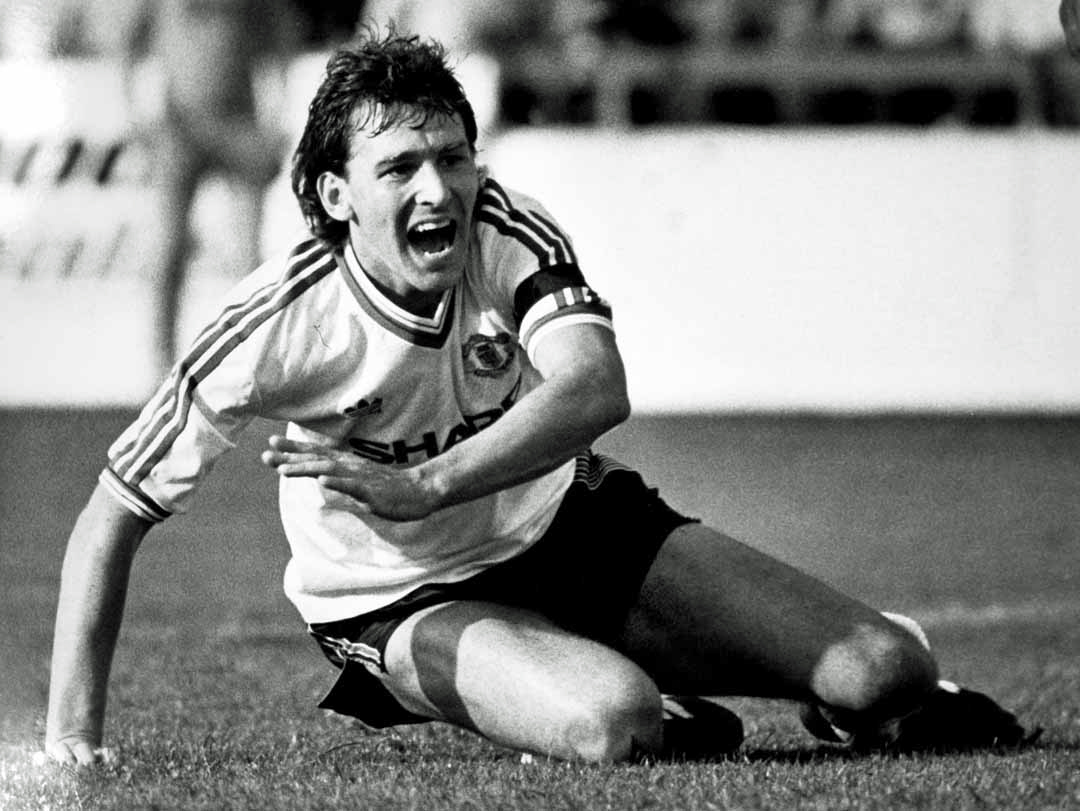
The joie de vivre which lit up United’s play in the early stages of the campaign disappeared. “We lost our shape and our width,” admitted Kevin Moran, as Olsen and Peter Barnes struggled with form and injuries.
Equally alarming was Hughes’s loss of form. After plundering 10 goals in the opening 15 games, he only scored another seven league strikes that campaign. Atkinson claimed it was “a temporary problem for a young player”. The truth was that United had sanctioned Hughes’s move to Barcelona early in January (it was kept secret from fans and journalists), which the player later admitted “destroyed my concentration”.
Drinking and diving
Results up to November 2
Pl 15 W 13 D 2 L 0 F 35 A 6 GD 29 Pts 41
Results after November 2
Pl 27 W 9 D 8 L 10 F 35 A 30 GD 5 Pts 35
When the Merseyside clubs finally overhauled United early in the New Year, questions were asked about whether United players’ notorious refuelling habits were taking the edge off their displays. Atkinson was accused of failing to control the amount of alcohol the team was consuming in their public drinking binges in local hostelries. Having won 13 of their first 15 league games, United won just nine (and lost 10) of their final 27: as Scouse comedian Stan Boardman gleefully joked: “Manchester United somehow finished fourth in a two-horse race.”
They finished a massive 12 points behind champions and bitter rivals Liverpool, who also beat runners-up Everton in the FA Cup final to do English football’s first Double in 15 years.
Although the European ban meant there was little incentive once the title hopes were gone, United also finished eight points behind third-placed West Ham. “Ron proved that he couldn’t manage that team to the title,” explained Gordon Strachan, “and something had to change.”
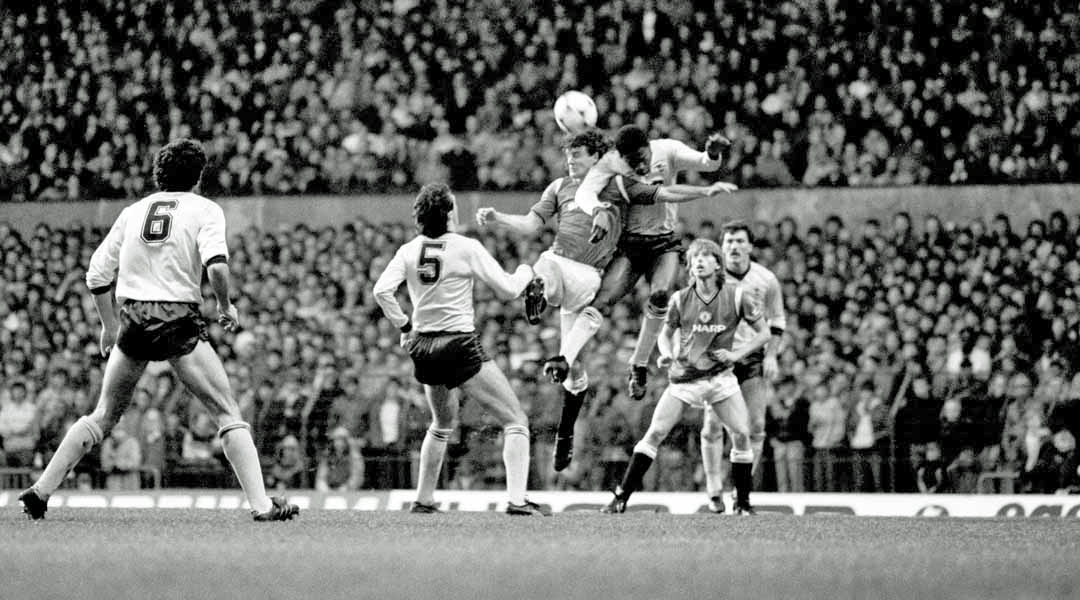
Big Ron gone
It did, but not to Atkinson’s benefit. When a disheartened United made a dismal start to the following campaign, the jovial Scouser was dismissed in early November, following a 4-1 hammering by Southampton in the Littlewoods Cup, and replaced by Alex Ferguson.
It would take the former Aberdeen manager nearly seven years to assemble a title-winning squad at Old Trafford. By then, he’d sold the immensely gifted but heavy-drinking Whiteside and McGrath, and bought back Hughes.
When Robson lifted the new Premier League trophy with Steve Bruce in May 1993 in front of Sky cameras, TV blackouts of football were a thing of the past. So was the lack of professionalism and focus at Old Trafford which prevented Manchester United from being crowned First Division champions 31 years ago, despite that red-hot early season winning streak.
While you’re here, subscribe to FourFourTwo and get three copies of the magazine for just £3. It’s the perfect gift idea for anybody who loves football (including yourself)...
NOW READ
FFT'S ALTERNATIVE AWARDS 2020 Who won the Masterclass, Disasterclass, Breakthrough, Comeback and Hero of the Year?
Jon Spurling is a history and politics teacher in his day job, but has written articles and interviewed footballers for numerous publications at home and abroad over the last 25 years. He is a long-time contributor to FourFourTwo and has authored seven books, including the best-selling Highbury: The Story of Arsenal in N5, and Get It On: How The '70s Rocked Football was published in March 2022.

